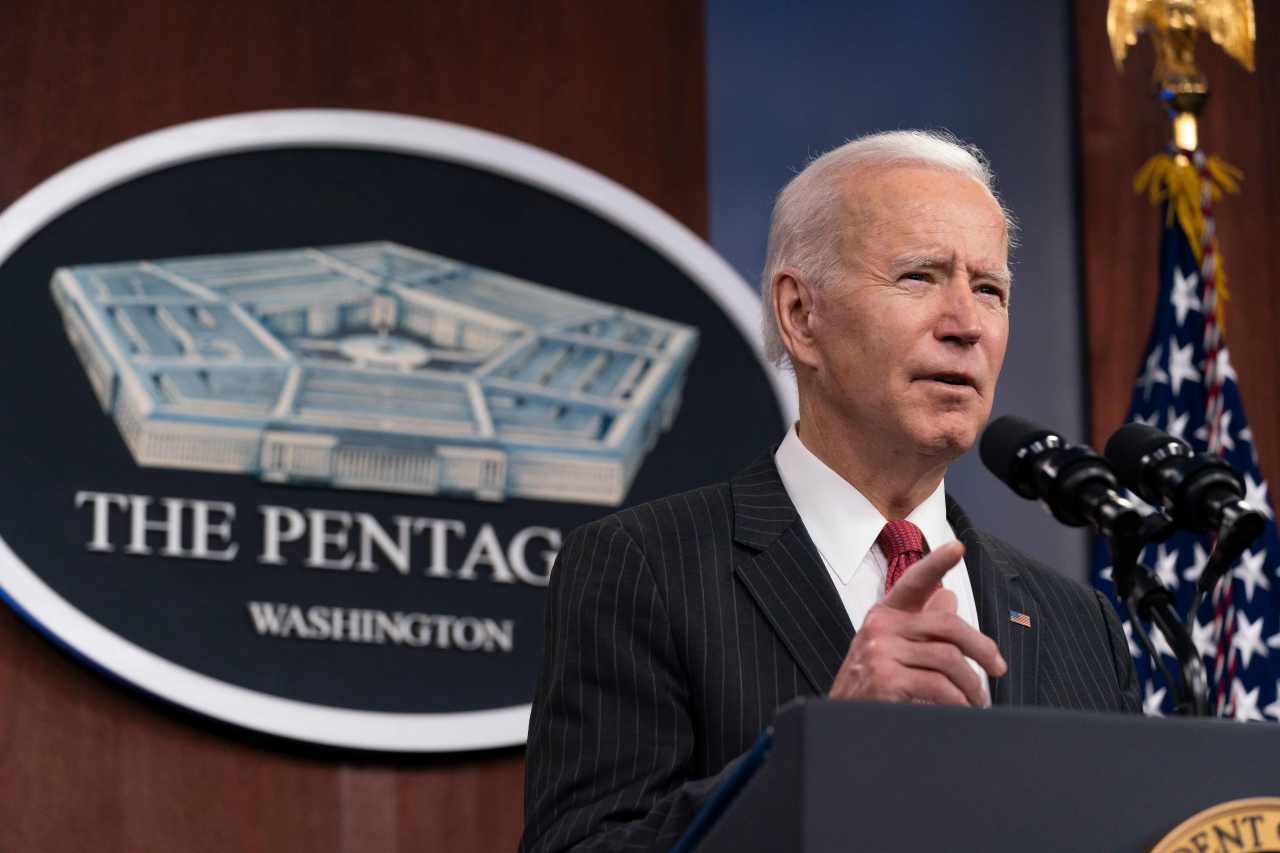Biden says will empower diplomats to reduce threat from N. Korea
By YonhapPublished : March 4, 2021 - 09:19

WASHINGTON -- The United States will empower its diplomats to reduce threats posed by North Korea, President Joe Biden said in his interim national security strategic guidance published Wednesday.
"We will empower our diplomats to work to reduce the threat posed by North Korea's growing nuclear and missile programs, standing shoulder-to-shoulder with the Republic of Korea and Japan," the US president said in his guideline, referring to South Korea by its official name.
The guidance echoes his earlier pledge to place diplomacy at the heart of everything his country does.
The interim guidance also came shortly after Secretary of State Antony Blinken laid out eight top foreign policy priorities for the US.
They included a wide range of issues, such as the COVID-19 pandemic, climate change and Chinese aggression, but did not directly address threats posed by North Korea.
"Today, I am issuing this interim guidance to convey my vision for how America will engage with the world. I direct departments and agencies to align their actions with this guidance, even as we begin work on a National Security Strategy," the US president wrote in a statement released by the White House.
Biden said the North, along with China, Russia and Iran, continue to pose security threats to his country and its allies.
"Regional actors like Iran and North Korea continue to pursue game-changing capabilities and technologies, while threatening US allies and partners and challenging regional stability," he wrote.
To deal with such threats, Biden said the US will reinvigorate and modernize its alliances and partnerships with countries such as South Korea, which he called "America's greatest strategic asset."
"We will work with allies to share responsibilities equitably, while encouraging them to invest in their own comparative advantages against shared current and future threats," he said. (Yonhap)
"We will empower our diplomats to work to reduce the threat posed by North Korea's growing nuclear and missile programs, standing shoulder-to-shoulder with the Republic of Korea and Japan," the US president said in his guideline, referring to South Korea by its official name.
The guidance echoes his earlier pledge to place diplomacy at the heart of everything his country does.
The interim guidance also came shortly after Secretary of State Antony Blinken laid out eight top foreign policy priorities for the US.
They included a wide range of issues, such as the COVID-19 pandemic, climate change and Chinese aggression, but did not directly address threats posed by North Korea.
"Today, I am issuing this interim guidance to convey my vision for how America will engage with the world. I direct departments and agencies to align their actions with this guidance, even as we begin work on a National Security Strategy," the US president wrote in a statement released by the White House.
Biden said the North, along with China, Russia and Iran, continue to pose security threats to his country and its allies.
"Regional actors like Iran and North Korea continue to pursue game-changing capabilities and technologies, while threatening US allies and partners and challenging regional stability," he wrote.
To deal with such threats, Biden said the US will reinvigorate and modernize its alliances and partnerships with countries such as South Korea, which he called "America's greatest strategic asset."
"We will work with allies to share responsibilities equitably, while encouraging them to invest in their own comparative advantages against shared current and future threats," he said. (Yonhap)



![[Exclusive] Korean military set to ban iPhones over 'security' concerns](http://res.heraldm.com/phpwas/restmb_idxmake.php?idx=644&simg=/content/image/2024/04/23/20240423050599_0.jpg&u=20240423183955)

![[Graphic News] 77% of young Koreans still financially dependent](http://res.heraldm.com/phpwas/restmb_idxmake.php?idx=644&simg=/content/image/2024/04/22/20240422050762_0.gif&u=)



![[Pressure points] Leggings in public: Fashion statement or social faux pas?](http://res.heraldm.com/phpwas/restmb_idxmake.php?idx=644&simg=/content/image/2024/04/23/20240423050669_0.jpg&u=)










